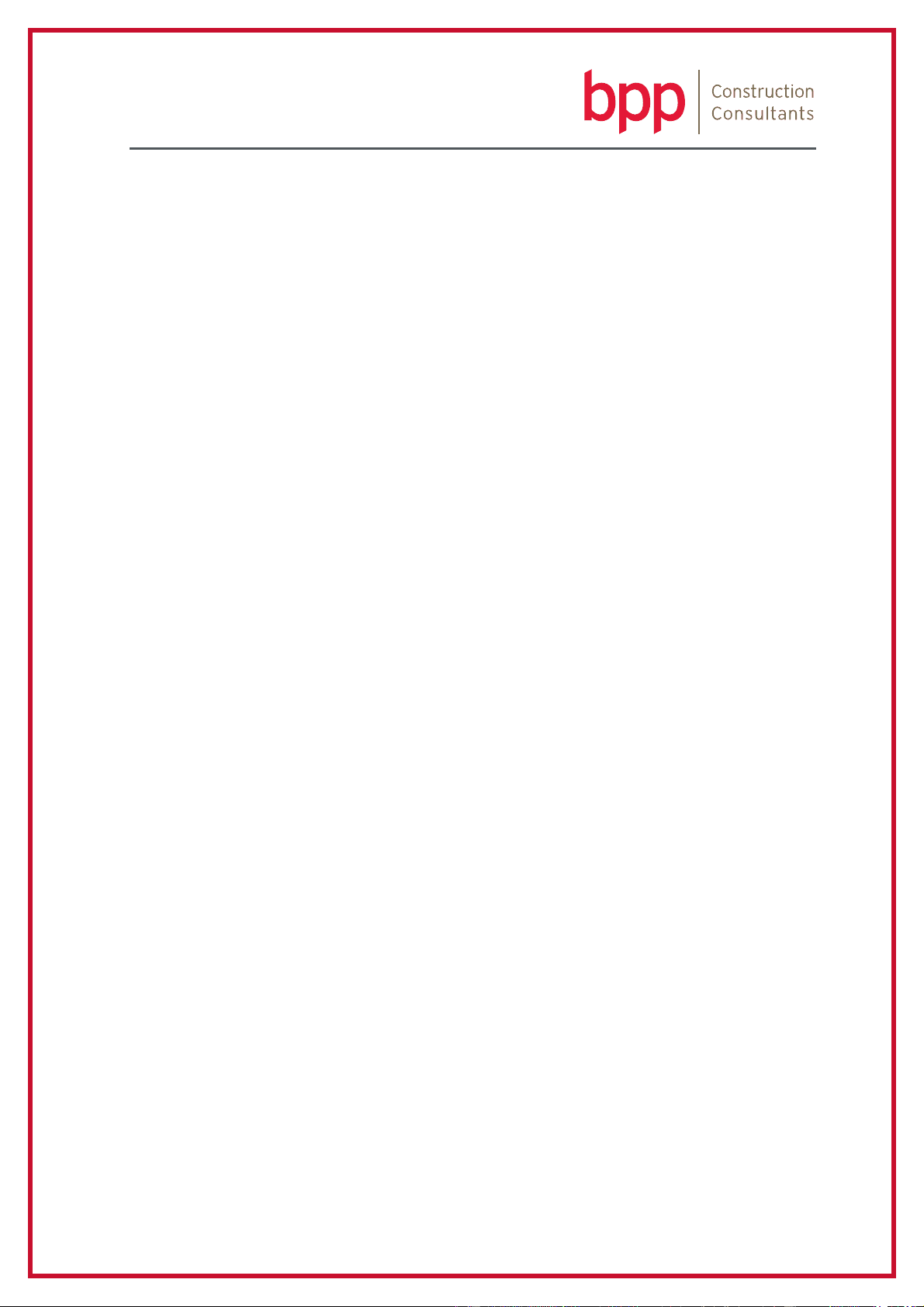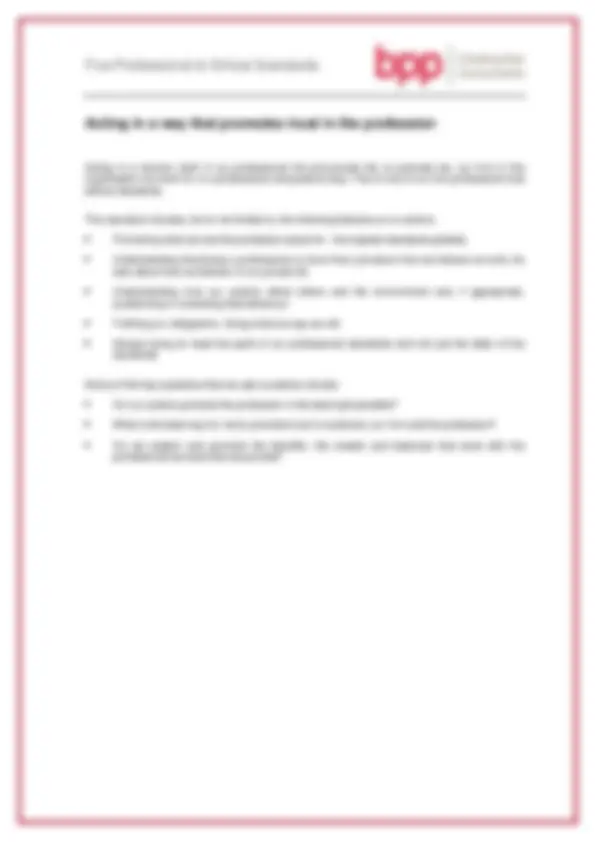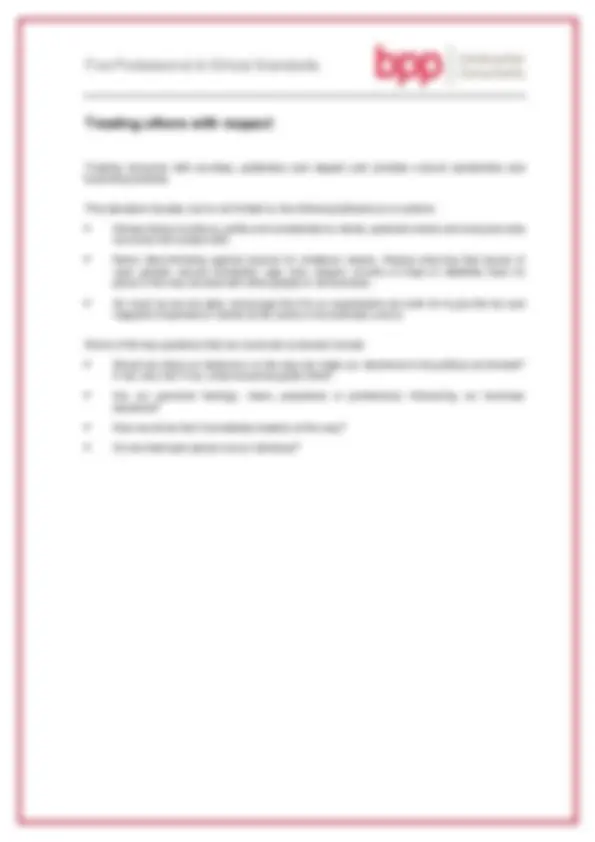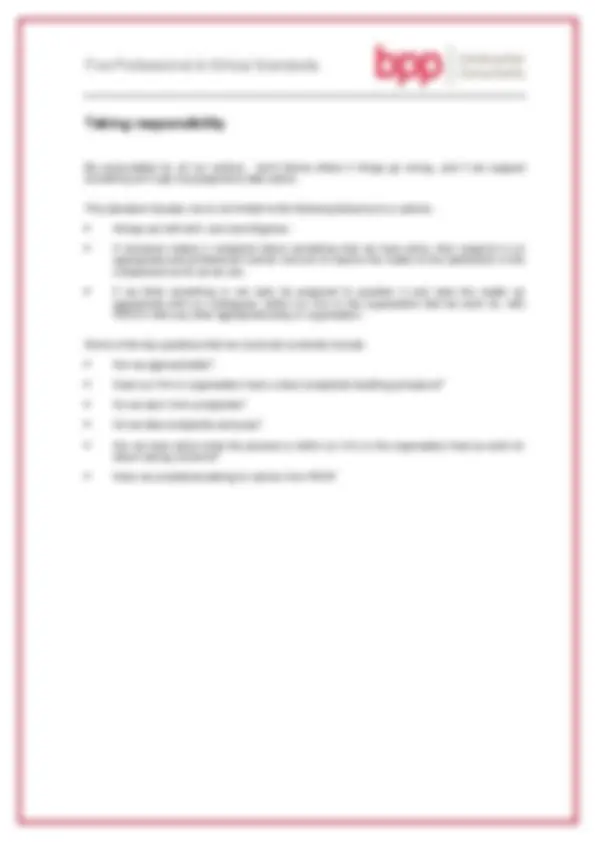





Study with the several resources on Docsity

Earn points by helping other students or get them with a premium plan


Prepare for your exams
Study with the several resources on Docsity

Earn points to download
Earn points by helping other students or get them with a premium plan
Community
Ask the community for help and clear up your study doubts
Discover the best universities in your country according to Docsity users
Free resources
Download our free guides on studying techniques, anxiety management strategies, and thesis advice from Docsity tutors
The five professional and ethical standards for surveying professionals as set by the Royal Institution of Chartered Surveyors (RICS). These standards include acting with integrity, providing a high standard of service, acting in a way that promotes trust in the profession, treating others with respect, and taking responsibility. Each standard is detailed with specific behaviors and actions, as well as key questions to consider for adherence.
Typology: Slides
1 / 5

This page cannot be seen from the preview
Don't miss anything!




Being honest and straightforward in all that we do. This is one of our five professional and ethical standards based on the regulations of RICS.
information with our clients and/or others to conduct business and doing so in a way so they can understand that information.
We do not divulge information to others unless it is appropriate to do so.
of care.
of interest, arises between us or our employer and our client.
obligation.
advice.
Some of the key questions that we ask ourselves include:
but also in terms of acting professionally and ethically?
Always ensuring our client, or others to whom we have a professional responsibility, receive the best possible advice, support or performance of the terms of engagement we have agreed to. This is one of our five professional and ethical standards.
This standard includes, but is not limited to, the following behaviours or actions:
scope then be prepared to do something about it, for example, make it known to our client, obtain expert input or consultation, or if it's the case that we are unable to meet the service requirements, explain that we are not best placed to act for the client.
commissions.
timescale agreed.
centre of its business culture.
Some of the key questions that we could ask ourselves include:
not, why not?
more than we actually can?
Treating everyone with courtesy, politeness and respect and consider cultural sensitivities and business practices.
This standard includes, but is not limited to, the following behaviours or actions:
we come into contact with.
race, gender, sexual orientation, age, size, religion, country of origin or disability have no place in the way we deal with other people or do business.
respectful treatment of clients at the centre of its business culture.
Some of the key questions that we could ask ourselves include:
If not, why not? If so, what would the public think?
decisions?
Be accountable for all our actions - don't blame others if things go wrong, and if we suspect something isn't right, be prepared to take action.
This standard includes, but is not limited to the following behaviours or actions:
appropriate and professional manner and aim to resolve the matter to the satisfaction of the complainant as far as we can.
appropriate with our colleagues, within our firm or the organisation that we work for, with RICS or with any other appropriate body or organisation.
Some of the key questions that we could ask ourselves include:
about raising concerns?